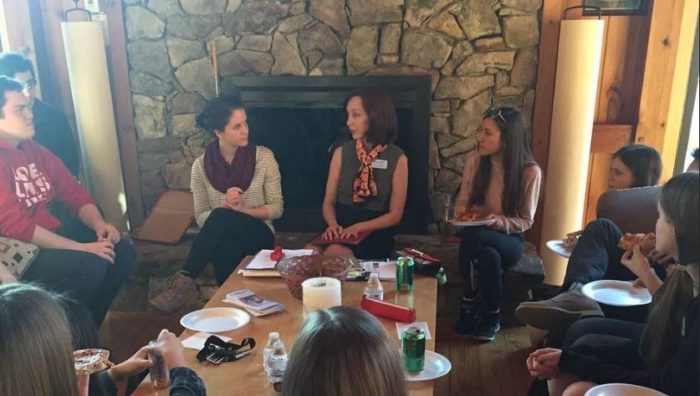by Karen Morris, LP, NCPsyA
Linda Smith’s account of her encounters on Falkland Road in Mumbai, in Renting Lacy, brought me to tears in a way I thought would never stop. I was as George Harrison wrote, “drowning in the tears of the world.” I knew then I had to stop tuning out the pervasive commercial sexualization of children, and do something. Compassion and empathy for the suffering of others are basic human civilizing factors. How is it they are seemingly undone and in their places posited the values of cruelty, debasement and torture in the name of entertainment? If 27 million people are enslaved in the world, how many more are willing to victimize and enslave others for profit? This must be understood in order for all victims of trafficking to heal, including those who knowingly and unknowingly profit from the suffering of others.
Recently on “The View,” a conversation began among the female celebrity hosts with a provocative statement about female porn stars having the most desirable of all professional life styles. They went on feigning envy about making “a ton of money” for having sex all day, wearing really sexy clothes, especially shoes, which are of high value for these women. This style of dialogue reinforces class distinctions by inciting primitive feelings of greed and envy. Commoditizing women as sex-objects powers the desire to imitate that life style for those left behind in the national/global craze for porn. Those who crave “the look” put forth by “The View” as desirable become a link in the chain of normalization of trafficking. Perhaps they are not aware of the more than 20 million child pornography websites, some containing millions of images of children for sale, 10 million sites of which are based in the United States. The intention of commercialization is to enslave, evident in speech, mannerisms and fashion, perceivable in every form of media. Their drive is to get us to want more, wasting lives and resources. Civilization thrives only when conditions support the development of Wisdom and valuing of human potential.
Karen Morris is a PA Ambassador of Hope and psychoanalyst in private practice in New York City and Honesdale, PA. She is an award winning author and poet. Her book CATACLYSM and Other Arrangements (Three Stones Press), received the Gradiva Award for poetry (2015, NAAP). She is co-author with visual artist John Tomlinson, of RAGE: The Misery of Men::Hope: The Dawning of Men (2016), and co-founder of Two Rivers Zen Community in Honesdale, PA.
 I went through the treatment surrounded by love and support from our friends and family. They cared for our son, moved our things back from Italy and encouraged us during my treatment. It was a great celebration when after several months, I was declared cancer free. However, the road to recovery was far worse than we had anticipated. I felt like my world had turned upside down as I lost my voice and my ability to swallow. I was in a lot of pain and frustrated because I couldn’t communicate.
I went through the treatment surrounded by love and support from our friends and family. They cared for our son, moved our things back from Italy and encouraged us during my treatment. It was a great celebration when after several months, I was declared cancer free. However, the road to recovery was far worse than we had anticipated. I felt like my world had turned upside down as I lost my voice and my ability to swallow. I was in a lot of pain and frustrated because I couldn’t communicate.





